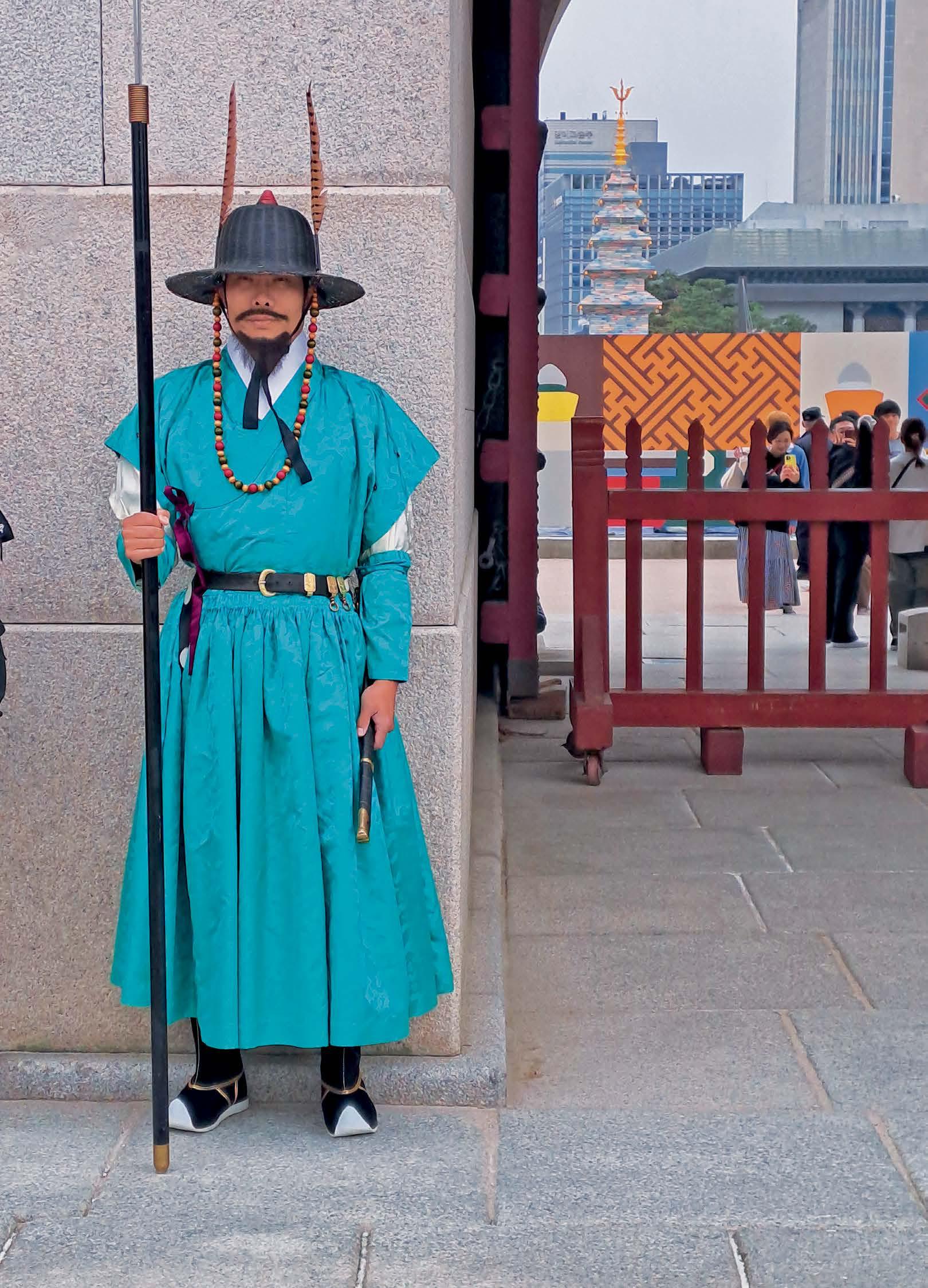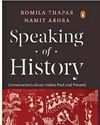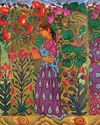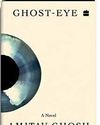Versuchen GOLD - Frei
HEART & SEOUL
Reader's Digest India
|February 2024
This bustling metropolis will woo you with its melting pot of futuristic architecture, ancient culture and natural beauty

Two weeks in Seoul, South Korea's bustling capital, is just not enough time to explore all it has to offer. With ancient temples, palaces and fortress walls rubbing shoulders with sparkling contemporary architecture, exquisite mountain landscapes, parks and forests, plus pumping nightlife and outdoor markets galore, Seoul really has something for everyone.
Founded as the capital of the unified Korean peninsula in 1394, Seoul sits in a basin and is surrounded by four low mountains, which provided a natural defence to the fledgling kingdom. To reinforce this defence, several years into the Joseon Dynasty (1392-1910) construction started on a wall along the mountain ridges. Much of the fortifications remain today (some have been rebuilt) and are a magnet for tourists.

On our first day in Seoul, we decided to do something cultural and headed to Gwanghwamun Square and Gyeongbokgung—the largest of the five remaining gung or palaces in Seoul—where the history of the Joseon Dynasty began. We were going to take a bus from our hotel in the central district of Myeongdong, but there was such a vibrant atmosphere when we stepped onto the street, we decided to walk. Sejong-daero, the main thoroughfare that passes City Hall and leads to Gwanghwamun Square, was festooned with colourful lanterns—and being a Sunday, the mood was positively festive. We discovered later that many streets and temples across the country are decked out with the lanterns and other decorations during April and May to celebrate Buddha’s birthday.

Diese Geschichte stammt aus der February 2024-Ausgabe von Reader's Digest India.
Abonnieren Sie Magzter GOLD, um auf Tausende kuratierter Premium-Geschichten und über 9.000 Zeitschriften und Zeitungen zuzugreifen.
Sie sind bereits Abonnent? Anmelden
WEITERE GESCHICHTEN VON Reader's Digest India

Reader's Digest India
Speaking of History by Romila Thapar, Namit Aroram, Penguin Random House, India
Romila Thapar is one of India's most accomplished historians, her work on ancient India being particularly well-received and a part of university curricula around the world.
1 min
December 2025

Reader's Digest India
ME & MY SHELF
Ranjeet Pratap Singh is the co-founder and CEO of Pratilipi, the largest Indian language digital storytelling platform with over 9,50,000 writers in 12 languages and over 30 million monthly readers. Singh was part of the Forbes 30 Under 30 list in 2018.
3 mins
December 2025

Reader's Digest India
HUMOUR in UNIFORM
While our frigate was taking on supplies at sea from a British ship, I noticed three of their sailors pointing to our destroyer’s squadron crest, which was proudly mounted on the side of our ship.
1 min
December 2025

Reader's Digest India
Obeshwar by A. Ramachandran, Oil on canvas, 2022 78 x 192 inches
One of independent India’s preeminent artists, A. Ramachandran (born in 1935), passed away last year, following a long and distinguished career.
1 min
December 2025

Reader's Digest India
Memes for Mummyji by Santosh Desai, HarperCollins India
Santosh Desai, one of Indian advertising's leading lights for over two decades, has a well-earned reputation for spotting cultural trends in Indian cities, as evidenced by his previous book Mother Pious Lady.
1 min
December 2025

Reader's Digest India
Ghost-Eye by Amitav Ghosh, HarperCollins India
In Amitav Ghosh's first novel since Gun Island (2019), we meet a young Marwari girl named Varsha Singh living in Calcutta in the 1960s with her strictly vegetarian family.
1 min
December 2025

Reader's Digest India
"Good Songs Stay Written ..."
Rock legend Bruce Springsteen on music as a time machine, responsibility in the family, and the situation in the USA
3 mins
December 2025

Reader's Digest India
WHEN COMPUTERS WERE FEMALE
THE PIONEERS OF PROGRAMMING WERE SIX WOMEN
6 mins
December 2025

Reader's Digest India
I Am My Mother's Older Brother
As the onset of dementia reshapes their world, a daughter becomes her mother's carer and keeper while navigating grief, duty, and unwavering love
7 mins
December 2025

Reader's Digest India
Small Changes Big Results
While motivation gets us started, discipline is what keeps us going.
3 mins
December 2025
Listen
Translate
Change font size
